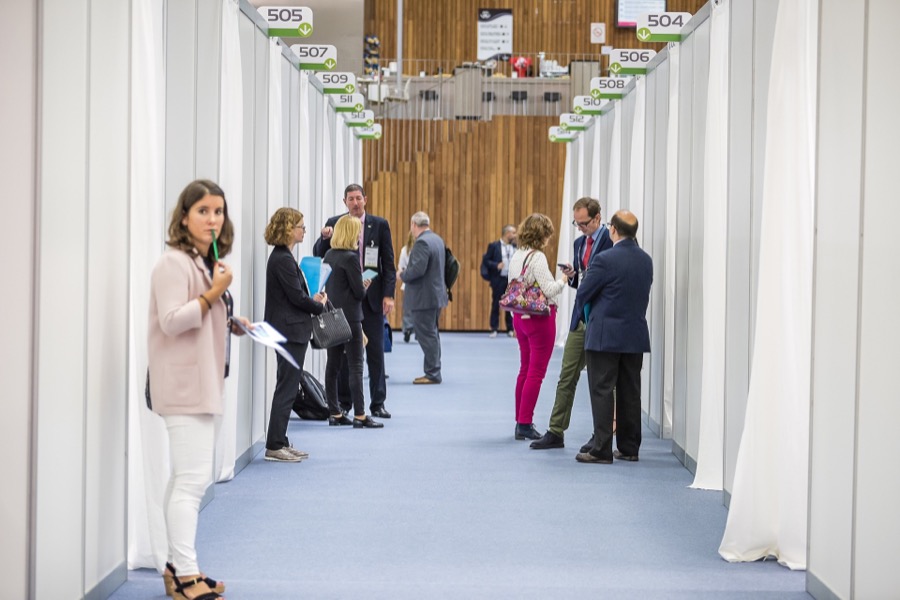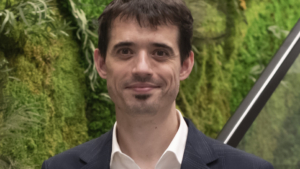
Spain set to unveil the potential of the biologisation of medicine and food production
The Spanish EU Council Presidency is to set the course for the internationally competitive use of biotechnology in drug development, plant breeding and food production.
At BioSpain 2023, several panels discussed the Spanish EU Presidency’s goal of setting the course for the internationally competitive use of biotechnology in drug development, plant breeding and food production through a new non-bureaucratic legal framework. Thirty pre-selected start-ups demonstrated new approaches to make drug development more effective and to decarbonise food and industrial production. Experts agreed that the reform of EU pharmaceutical legislation and deregulation of new genomic techniques in plant breeding are crucial for EU biotech companies to catch up with leading biotech centres such as in the US and China.
It’s time to place biotechnology at the core of a new, more sustainable European growth model, Ion Arocena, CEO of Spanish Bioindustry Association AseBio, said. Europe needs to boost investment in R&D and enabling infrastructure, generate and grow innovative [biopharmaceutical] companies, and increase biomanufacturing capacity, particularly in the emerging markets for precision, mRNA, and & gene therapies. Until December, the Spanish EU Presidency will push to deregulate the application of New Genomic Technologies aimed to bred climate-resilient crops until the end of this year, said Arocena, and to design microbes that produce food, chemicals and energy sources more sustainably. The planned reduction in bureaucracy is also intended to help allow the approval times for novel foods, such as climate and animal-friendly cultured meat, fish and dairy products, which are at least twice as long in Europe as in the U.S. and Singapore, and to keep the beckoning billions in sales for the globally emerging industry in the block.
At BioSpain 2023 in Barcelona, the more than 80 institutional investors present gave a clear signal that they see European biotechnology as an important investment target, evidenced by start-up pitches in the segments Drug Discovery & Delivery, Diagnostics, Agri-bioch as well as Food & Nutrition, with more than 30 preselected start-ups presenting. With 2,100 visitors, 1000 companies, 220 exhibitors and 5000 partnering meetings, BIOSPAIN 2023 was, according to Arocena, about 30% higher than all figures of BioSpain 2018 – breaking all previous records. It was a true showcase of European innovators in pharma, agri and industrial biotech. By the time of the next Biospain in two years, he said, Europe must manage to have an appropriate regulatory framework in place for biotechnology. It is time to act now, Arocena stressed
Reciting study results commissioned by the European Pharma Federation EFPIA, Raquel Tapia, General Manager of Sanofi Spain, explained that Europe would need to expand its clusters through targeted investments. “To increase clusters in Europe and enhance the global competitiveness of the biotechnology sector, there must be a strong commitment to it, both from the public and private sectors. It needs to be done urgently because Europe needs to regain its competitiveness in R&D compared to other regions of the world. Clusters play a key role as a link between those who have the capacity to finance projects and those with the capacity to propose innovative solutions. We must learn from what is happening in other regions like the United States, where their biotechnology cluster combines leading academic institutions, scientists, and industry, including robust technology transfer mechanisms that allow the rapid translation from academic laboratories to research and, subsequently, large-scale development with investment and resources,” she concluded. A special covering all relevant European biotech clusters, incubators and pharma and food manufacturing centres will be published in the December issue of European Biotechnolog.
Additionally, Europe and the UK must speed up the approval and conduction of clinical trials, biologics, cell & gene therapies and modernise the application of its regulatory framework. According to CRO specialists at BioSpain, Spain has outperformed the UK in terms of speed and quality in recent years.
Sustainable industry and food production was another major focus at Biospain. “The bioeconomy is undergoing rapid transformation thanks to revolutionary advances inBiotech, said Víctor Guallar, CSO, and Co-Founder of Nostrum Biodiscovery. Most recently, the first application for market approval in the EU for a product from cellular agriculture was filed. But approval times for cultivated meat or food made by precision fermentation are much shorter (less than 12 months) in Singapore and the US compared to the EU, whose EFSA needs 18 months at least. Companies thus want to cut the EU red tape to reduce regulatory burden and to uncouple food production from agriculture thereby reducing water consumption, CO2 emissions and pesticide and fertiliser use significantly. Genome editing and synthetic biology drive the development of new biological products and processes and circularisation saving huge amounts of waste produced by the currently dominant linear fossil-based consumption and waste concept. According to Guallar, finally, AI and supercomputing techniques will accelerate progress, harnessing the benefits of new biotechnologies.”However, the emerging novel food players need a lot of support and communication campaigns to convince consumers that their products are more sustainable, animal friendly and more healthy albeit currently being perceived synthetic.
Targeted breeding through New Genomic Techniques (NGT) could also contribute to more sustainability of agriculture if applied in a principally different way than today. Biotech offers the hope to speed up targeted trait generation. An often cited example is crops produced by NGT that are more resilient to abiotic and biotic stress thus better adapted to the consequences of climate change mainly produced by the G20 states which are responsible for estimated 80% of global CO2 emissions. “Climate change is exerting significant pressure on the food production system, so ensuring food security and mitigating its effects will not be possible without innovation in agriculture, which includes the use of new techniques like genetic editing,” said Richard Borreani, the Public Affairs and Sustainability Manager of Bayer Crop Science at Biospain.
At the food session of BIOspain, Maria Sada, Head of EIT Food Education Programs for UAM-IMDEA Food in Madrid, said that plastics and chemicals have made many problems in the past. “Now we have sustainable solutions that are perceived as dangerous because we use genetically engineered bacteria that secrete proteins, fats etc. Maybe it would be a good idea to give more information to the public so they can see that is a one-sided view.”
At the green start-up pitch, sponsored by Bayer Crop Science, selected biotechs presented futuristic approaches how biotech can contribute to better medicines and more sustainability. PHA specialist Biodriven Technologies said the bacterial bioplastics could significantly reduce the 8 millon tons of not degradable plastics entering the oceans annually. The company’s CbO Alvaro Caselanos Caro reported that PHA production could be circularised and degraded completely. The company will start mass production in 2027 latest. A ready-to-use concept to monitor the 31% food waste, shelf life of pharmaceutical and other perishable products was presented by Luia Chimeno, CEO of the start-up Oscillium in Barcelona. The smart labels show the shelf life of the products like a traffic light and lead to a 30% cost reduction and 20% higher profitability by saving waste. A futuristic approach to using broccoli waste was presented by Miguel Marquez, CEO of Ingredalia SL. The start-up has been producing freeze-dried vitamin-rich pills from the extracted recyclables since 2021.
Whether the ten start-ups selected by Ysios Capital from hundreds of applications for the drug discovery/delivery pitch will soon become portfolio companies of the 80 institutional investors at BioSpain remains to be seen. But the first-in-class approaches of spin outs such as Palo Biofarma (asthma), Bold Therapeutics (gastrointestinal diseases), Gyala Therapeutics (AML), Remab (AMR), ZeCardio (cardiomyocyte regeneration), Neurofix Pharma (neuropathic pain), Neurofix Pharma (Friedreich’s ataxia), D-Sight (diabetic retinopathy), Incliva (repurposed, reformulated SMA drug) and Laminar Pharmaceuticals (glioma), are now enjoying high visibility.
With 5,000 partnering meetings, 220 exhibitors, 2,100 attendees and at least 1,000 companies, Biospain grew by 30% compared to the last in person BioSpain in 2018, Arocena told European Biotechnology. He said, until next BioSpain in 2025, he hopes to see all ambitous regulatory attempts to create a clustered, debureaucratised and more competitive sector become reality. “It’s time to act now,” the CEO of AseBio stressed.
According to a survey of selected exhibitors by European Biotechnology, all of them want to exhibit at BioSpain 2025 again. Around 93% of exhibitors gave BioSpain 2023 a rating of 7 or more on a scale of one to ten. At the end of the show,


 AseBio
AseBio
